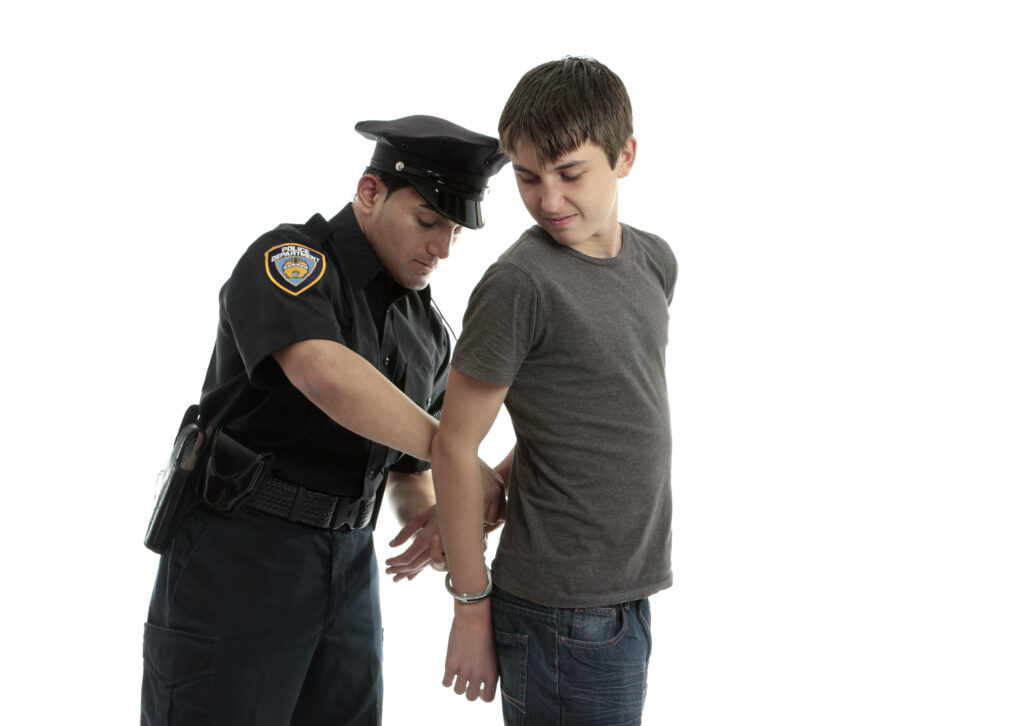Can an officer question a child without a parent or guardian’s consent or knowledge? The short answer…yes they can.
This is a scary situation for any parent to be in and not know where their child is at or that their child is being questioned by the police. A parent’s initial instinct is to protect their child. If the child is a suspect in a crime or delinquency act, the Federal Juvenile Delinquency Act 18 USC § 5033 has case law and statutes in place to protect the child. The Federal Delinquency Act states in pertinent part that if a child is taken into custody, the arresting officer has to read the child a version of the Miranda Rights that is understandable to the child. The officer has to immediately notify the Attorney General and has to immediately notify the child’s parent(s) or legal guardian(s). However, case law says that once a child is placed in custody, the arresting officer simply has to “make a good faith effort to notify the juvenile’s parents” of the arrest of their child and what the child is being charged with. There are several issues that may arise with the child’s confession, but the short answer is the police do not need a parent or guardian’s consent to arrest and interview a child.

If the minor child is a victim or witness to a crime, the police can also question the child without notifying the parent or guardian. The police will typically notify the school where the child is located and question the child at the school. If the child is removed from the school by the police, the police will notify the Department of Child Safety (“DCS”), who in turn will notify the parent or guardian. However, the police do not have to obtain the parent or guardian’s consent before speaking with the child. For example, if a child reported to the school that their parent or guardian is abusing them, the police would not go to the parent or guardian and ask, “can I speak to your child about the abuse you are committing on the child?” The parent or guardian would immediately say “NO!” Therefore, the police would never be able to properly investigate any child abuse allegations against a parent or guardian.
The best thing to do is discuss police interviews with a child. Let your child know they are safe to speak with you and they should always ask for a parent or attorney if they are suspected of doing something wrong.
Dodge & Vega PLC, protects the innocent and will fight for your child’s rights in a delinquency/criminal matter. Contact our office for a free 30 minute consult to find out how we can protect your child.
-Ben Dodge, Esq.,
Founder – Managing Partner, Trial Attorney

Founder – Managing Partner, Trial Attorney
Dodge & Vega Trial Law Practice Areas:
- Personal Injury
- Wrongful Death
- Family Law & Divorce
- Child Custody, Child Support, Spousal Support
- Criminal Defense Law
- Bankruptcy Law
- Probate Law